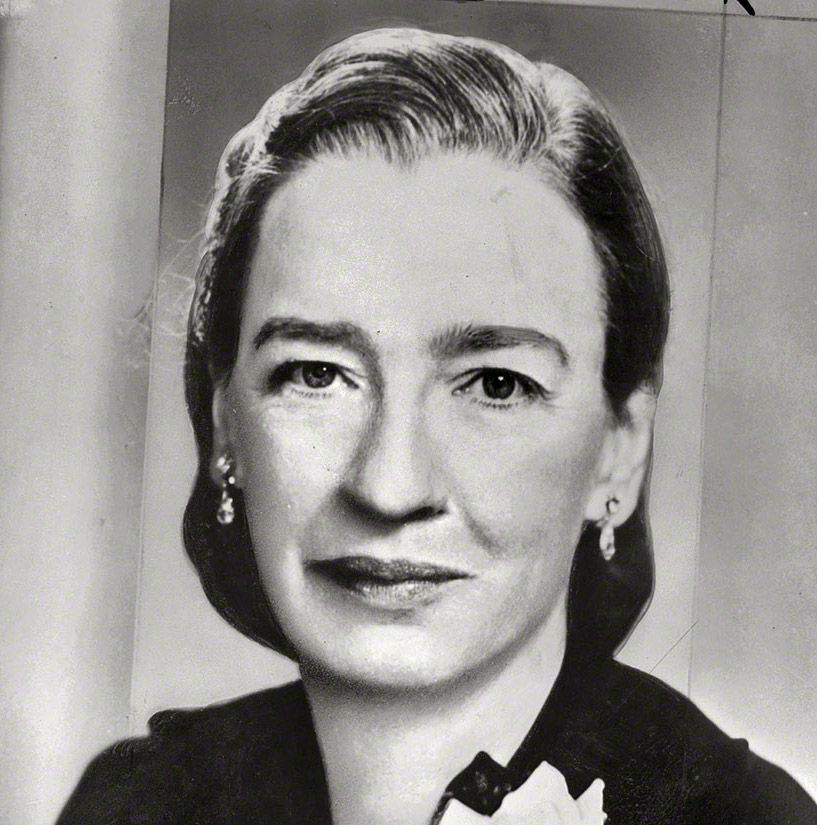History of Computers - Grace Murray Hopper
Page by: Andrew Warden

Rear Admiral (Lower Half) Grace Murray Hopper was a computer pioneer born in New York on December 9, 1906 as Grace Brewster Murray. She earned her bachelor's degree in mathematics from Vassar College in 1928, her Masters from Yale University in 1930, her Ph.D in mathematics from Yale University in 1934. She had begun teaching at Vassar in 1931 and was promoted to associate professor in 1941 prior to enlisting in the US Naval reserves at the onset of World War II. Grace Hopper was one of the first modern programmers and is credited with the world's first compiler.[2] Grace Hopper died on January 1, 1992 in Arlington, Virginia.
Overview
Grace Hopper began her professional career as a teacher at Vassar College and was briefly a professor before joining the naval reserves at the onset of World War II. After enlisting and completing naval training, Hopper was assigned to the Bureau of Ordinance Computation at Harvard University to work on the Mark I where she became its third programmer. She continued work at Harvard on the Mark II. It was during this time that she coined the term debug to refer to any hardware glitches after removing a moth from one of the Mark II's relays. In 1949 Hopper left Harvard and joined the team that developed the UNIVAC I, the first commercial computer, for Eckert-Mauchley Computer Corporation. The company was bought a year later by Remington Rand. Within two years of joining Remington Rand Hopper made a major breakthrough in Computing[3]. In 1951 and 1952 Hopper created the computing language A-0 and used it in 1952 to create the worlds first compiler, which is a program that translate high-level programing language into low level programming language. [4] This was the first time that a computer could communicate in a near human language[5]. This led to her being named the company's first director of automatic programming. While in this position she created several of the first compiler based programing languages including B-0, later called FLOW-MATIC, which was she used to teach the Univac I and II twenty English phrases [6]. In 1959 Grace Hopper set out to create the COBOL computer language which was to be a high level programming language, meaning that it was closer to English than machine code. The idea expanded upon her FLOW-MATIC programming language. In 1966 Hopper was temporarily forced to retire from the naval reserves due to her age but was reinstated a few months later and appointed to be the director of the Navy Programming Languages Group in the Navy's Office of Information Systems Planning and was promoted to the rank of captain in 1973[7]. Another major effort in Admiral Hopper's life was the standardization of compilers. Under her direction, the Navy developed a set of programs and procedures for validating COBOL compilers. This concept of validation has had widespread impact on other programming languages and organizations; it eventually led to national and international standards and validation facilities for most programming languages [8] In March 1983 she appeared on 60 minutes which prompted her promotion to Commodore (Later Renamed Rear Admiral (lower half)) by special Presidential appointment. She involuntarily retired from the Navy on August 14,1986. She was ceremoniously discharged aboard the USS Constitution and was at that time the oldest commissioned naval officer. She also received the Defense Distinguished Service Medal. She became a senior consultant to Digital Equipment Corporation until her death in 1992.[9]
Significance
Grace hopper is significant to the History of Computers because of her work in pioneering programming languages and the creation of the first compiler. Her compiler was one of its kind as it could convert and English based programming language into machine code, an aspect of computing that is the norm today. Her programming languages were among the first English based languages which eased the learning of the language and allowed for greater program complexity. She set the precedence of using high level programming language that is used to write nearly all if not all programs today. She is also significant in that she rose high in the ranks of the computing world and naval world despite being one of the only women to do so in her time which opens the door to later female programmers.
References
- ↑ Picture of Grace Murray Hopper
- ↑ www.agnesscott.edu
- ↑ www.agnesscott.edu
- ↑ Compiler
- ↑ 1983 60 Minutes Segment on Grace Hopper
- ↑ www.agnesscott.edu
- ↑ Grace Hopper Naval Biography
- ↑ http://cs-www.cs.yale.edu
- ↑ Grace Hopper Naval Biography